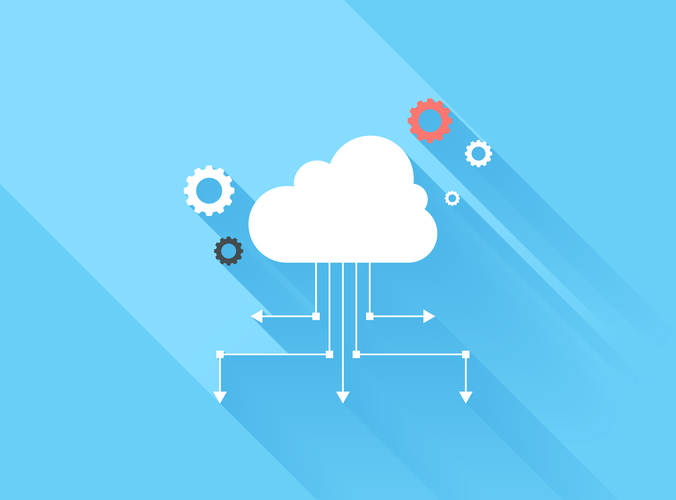The global crm software market is expected to grow from $106.23 billion in 2021 to $123.51 billion in 2022 at a compound annual growth rate of 16.3%. The market is expected to reach $216.63 billion in 2026 at a CAGR of 15.1%. Software helps manage procurement, storage, shipping, and distribution. It deals with materials ordering, suppliers, procurement, manufacturing, order processing, warehousing, logistics, and distribution. ✓Focus on security, compliance, and code quality in custom enterprise application development.
The Value of Observability in an Enterprise – Solutions Review
The Value of Observability in an Enterprise.
Posted: Fri, 16 Jun 2023 20:03:53 GMT [source]
(The first unit uses package shipping for all its orders.) The system was then modified to support bulk as well as package shipping, and the new configuration became the new standard. The company understood, however, that just having the data doesn’t necessarily mean the data will be used well. It therefore established a new position—demand manager—to be the focal point for the integrated sales and production-planning process. Drawing on the enterprise system, the demand manager creates the initial sales forecast, updates it with each new order, assesses plant capacity and account profitability, and develops detailed production plans. The demand manager is able to schedule a customer’s order—and promise a delivery date—up to six weeks ahead of production. Previously, production could be allocated to individual orders no more than a week in advance.
Principal Systems Administrator (Remote)
I work in support service, and use Zoho CRM to share information on customers and their orders with my colleagues. Analytical CRM creates efficient processes to respond to customer desires. It provides thorough data analytics, giving organizations insights into how to build stronger customer relations and improve the quality of service. For any organization with a complex structure, be it a large corporation, educational institution or government department, proper software is essential. There are different types of enterprise systems that ensure stable operational flow and make the management of assets easier.

These applications keep tabs on the budget and profitability of a company. Without accounting system integrations, it would be pretty challenging for businesses to track their expenses and profits. Enterprise apps can be customized solutions, and they can be adapted to the specific needs and requirements of a company. Enterprise application integration makes accessing and extracting stored business and customer data quick and easy.
ERP systems examples
Building a user-friendly website with digital materials is an important component in any successful marketing campaign for the company. Content management systems are usually used for creating, publishing and managing content for the most effective delivery. When choosing a CMS you should first understand your specific needs and compare the different products available on the market so that your needs are met. Some businesses benefit from enhanced real-time data reporting from a single source system. Accurate and complete reporting help companies adequately plan, budget, forecast, and communicate the state of operations to the organization and interested parties, such as shareholders.

In this article, we will tell what exactly the enterprise system is, how it can help businesses, present its major types and their key features. Enterprise systems are critical for managing companies in many industries. Corporations require them to collect, process, and interpret a vast amount of data, tying together lots of business processes and enabling the flow of data between units to run operations efficiently. Enterprise software supports multiple users in an organization or work group. Ultimately, you will see how taking advantage of the names on our list can prove beneficial for your enterprise, whether small or large.
Improves Accuracy and Productivity
The most common types of ERP systems include cloud ERP, on-premise ERP, and hybrid ERP. Product lifecycle management refers to the handling of a good as it moves through five typical stages of its lifespan, from development to decline. Employing change management principles throughout the ERP life cycle can prevent or reduce failures that compromise https://globalcloudteam.com/ full implementation. Once all departments are tied into the system, all data is collected on the server and becomes instantly available to those with permission to use it. Reports can be generated with metrics, graphs, or other visuals and aids a client might need to determine how the business and its departments are performing.
According to Martin Fowler, “Enterprise applications are about the display, manipulation, and storage of large amounts of often complex data and the support or automation of business processes with that data.” These programs automate operations in different types of organizations, governmental bodies, civil societies, and other groups. Depending on the type of an organization’s activity, the software varies as well. Below we will consider the most widespread types of enterprise systems.
Supply Chain Management Vs. Customer Relationship Management
It enables businesses to automate workflows, streamline processes, and improve collaboration among employees. Enterprise Resource Planning systems integrate enterprise applications such as purchasing, finance, human resources, and inventory management into one cross-functional system. Through ERPs, different departments can communicate and share information real-time, which eliminates inconsistencies and duplication of efforts during operations.
